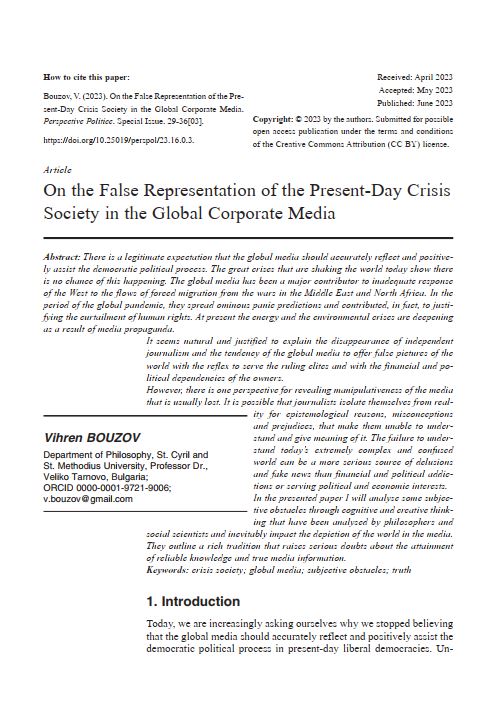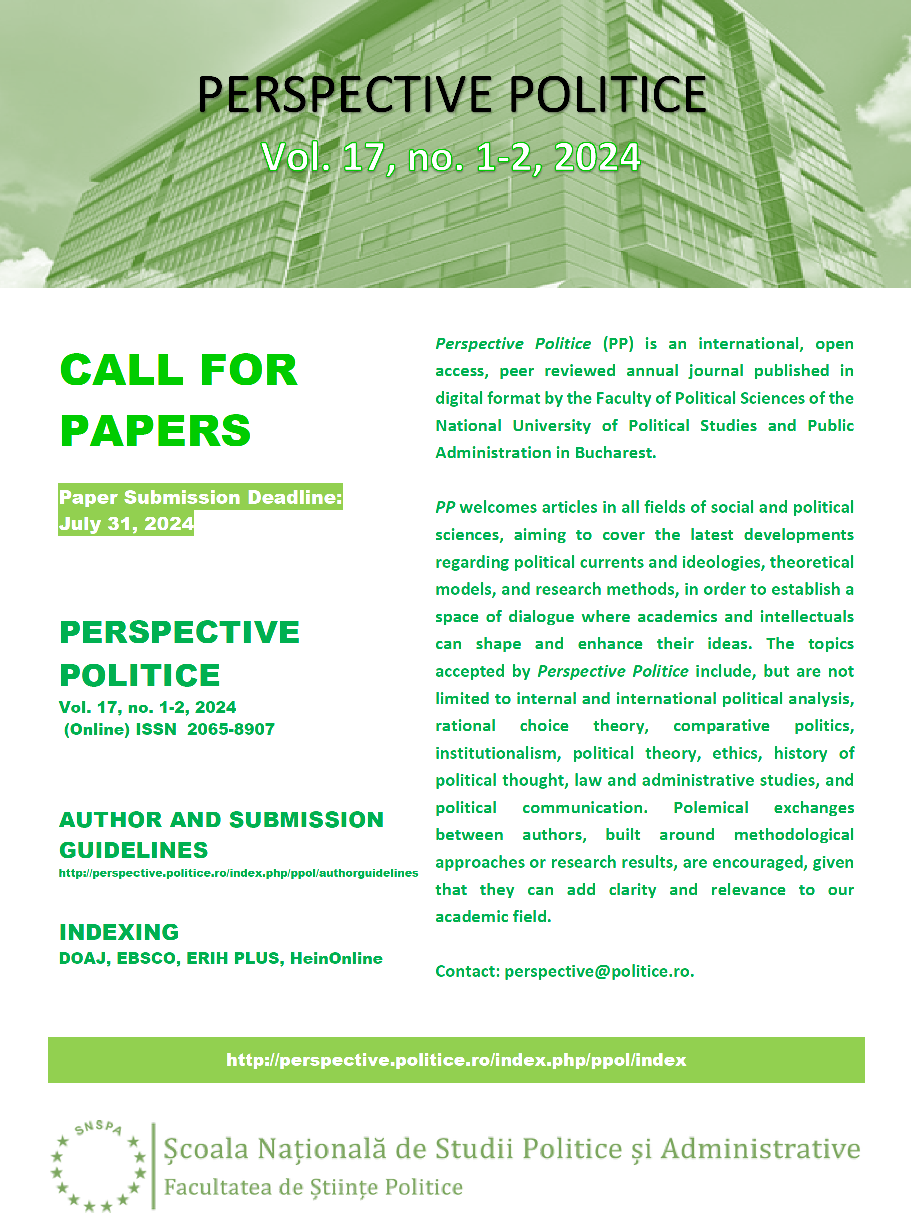On the False Representation of the Present-Day Crisis Society in the Global Corporate Media
Abstract
There is a legitimate expectation that the global media should accurately reflect and positively assist the democratic political process. The great crises that are shaking the world today show there is no chance of this happening. The global media has been a major contributor to inadequate response of the West to the flows of forced migration from the wars in the Middle East and North Africa. In the period of the global pandemic, they spread ominous panic predictions and contributed, in fact, to justifying the curtailment of human rights. At present the energy and the environmental crises are deepening as a result of media propaganda.
It seems natural and justified to explain the disappearance of independent journalism and the tendency of the global media to offer false pictures of the world with the reflex to serve the ruling elites and with the financial and political dependencies of the owners.
However, there is one perspective for revealing manipulativeness of the media that is usually lost. It is possible that journalists isolate themselves from reality for epistemological reasons, misconceptions and prejudices, that make them unable to understand and give meaning of it. The failure to understand today’s extremely complex and confused world can be a more serious source of delusions and fake news than financial and political addictions or serving political and economic interests. In the presented paper I will analyse some subjective obstacles through cognitive and creative thinking that have been analysed by philosophers and social scientists and inevitably impact the depiction of the world in the media. They outline a rich tradition that raises serious doubts about the attainment of reliable knowledge and true media information.

Downloads
Published
Issue
Section
License
Copyright (c) 2023 Vihren BOUZOV

This work is licensed under a Creative Commons Attribution-NonCommercial-ShareAlike 4.0 International License.



